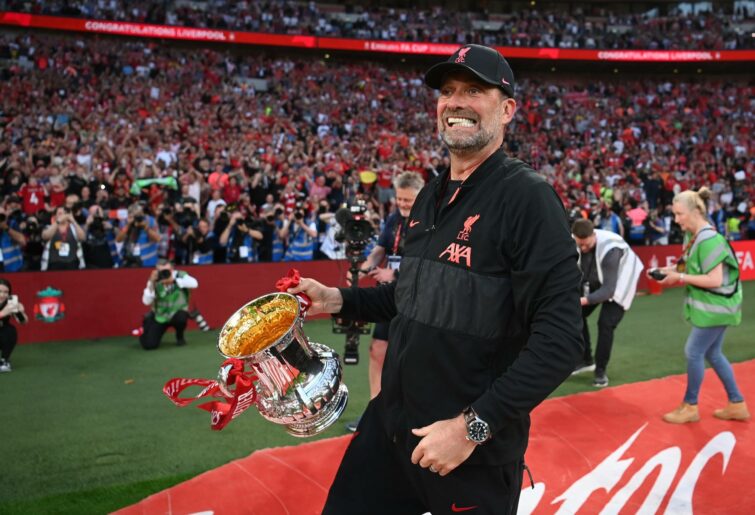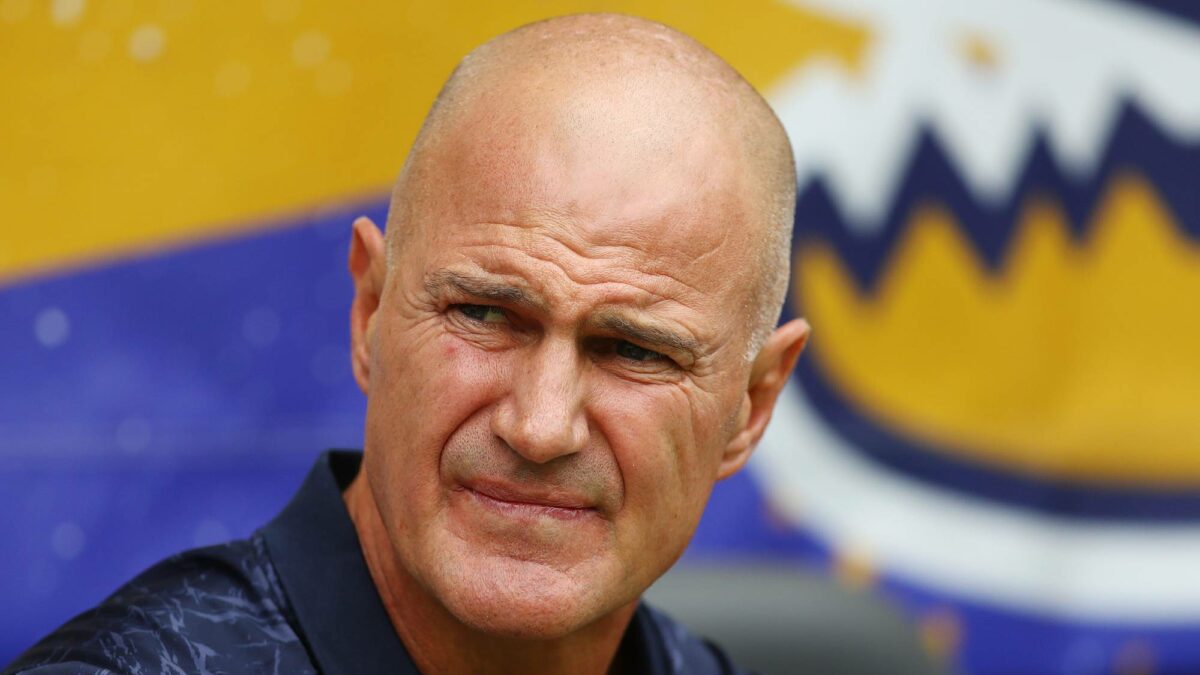The lengthy tenures of two respected coaches have come to an end. In the early hours of the morning (Australian time), Jürgen Klopp was farewelled in emotional scenes at Anfield after a disappointing third-place league finish, having signalled his exit from Liverpool FC in January. In the late afternoon, Parramatta coach Brad Arthur was quietly called into Eels head office, his sacking predicted by many in the NRL for over a month. A look into the mind of either man would no doubt reveal some regrets, with the real feeling that they could have achieved so much more with their clubs.
I’m (un)fortunate enough to be both a Parramatta and a Liverpool fan, both perennial underachievers with huge support. From birth, I had no choice with the footy, as my family are one-eyed Eels fans. I was at Homebush in 2009 when we almost pulled off the fairytale. I was there to farewell Nathan Hindmarsh, Luke Burt and a wooden spoon season in 2012, when Hindy signed off with an iconic penalty goal kicked from a sand tee. I got to see us open our new stadium with a thumping Moses-inspired win over the Tigers in 2019. Eels games have dominated my weekends for years. While the bad seasons have outweighed the good, there’s no team I adore more than Parramatta.
Liverpool were my choice. I’d been playing soccer since I started school, but it wasn’t until I watched ‘Will’, a low-budget 2011 film about an orphan about my age whose obsession for Liverpool led him to the 2005 Champions League Final in Istanbul, that I knew I had a Premier League team in the Reds.
During my first or second season of watching the English game, Liverpool unveiled the German gaffer from Dortmund as our new manager. Jürgen Klopp immediately made an impact, turning one of the laughing stocks of the big six over the past few decades into genuine competitors every time they took the field.
Klopp’s XI qualified for the Champions League in his first full season in charge. In his third, Liverpool made it through the league season with just one loss. When Brighton, featuring Socceroos captain Mathew Ryan (himself an Eels fan) led Manchester City early on the final matchday, the red half of Merseyside were convinced that Klopp had secured them their elusive title. While it wasn’t to be that day, a Champions League title came a few weeks later, and the long-awaited Premier League was secured the following year.

Jurgen Klopp of Liverpool celebrates with the 2022 FA Cup. (Photo by Michael Regan – The FA/The FA via Getty Images)
While Jürgen found quick success at Liverpool, Brad Arthur first had to guide the Eels through a crisis. 2016 saw the Eels playing the best football they had since 2009 with Corey Norman and Semi Radradra starring. It all came crashing down with the salary cap breach and subsequent points deduction.
While management, not the coach, can definitely take the blame for that debacle, it was up to Arthur to navigate the club through this challenging period.
Arthur responded to the adversity incredibly well. He broke the Eels out of their mediocrity with a breakthrough finals appearance in 2017, making the top four no less, and continued to lead the team to September footy each year from 2019.
Yet he could never seem to take Parramatta to the next level and perform in finals against strong sides like Melbourne or Penrith.
In those years there were plenty of marginal calls that prevented the dam wall from bursting and the blue and gold drought ending. But, ultimately, Arthur failed to secure us premiership success. The 2022 grand final was the closest of them all, but even Arthur admitted this week that the boys probably played their grand final the week prior in Townsville.

(Photo by Mark Kolbe/Getty Images)
Over in England, Klopp broke droughts and secured major trophies in the FA Cup, Champions League, League Cup, and of course the Premier League. He achieved this all while spending comparatively less than the other major English clubs, but like Arthur’s tenure, Klopp more often than not still served as a bridesmaid. Pep Guardiola’s indomitable City side had the edge.
In January’s exit announcement, Klopp outlined his reasons for leaving one of the biggest clubs in world football without his next job lined up. He said he was simply lacking the energy that the job demands, so he called it quits. On Tuesday morning, the day after Arthur was sacked, the former Eels mentor was still up at 4.30am, pacing, his body ready for the day of coaching ahead that would not come.
Arthur never lost the energy for his role, but he failed to adapt his strategies to end the nearly four-decade drought the Eels have endured. I watched on once more as the Eels once again capitulated in the second half of their match at Magic Round. It was time for Brad to go.
Arthur will go down as one of the Eels’ best coaches, having served the club well for over a decade. It’s clear the players loved him. Yet he could never clear the final hurdle of a grand final victory. Klopp’s Liverpool side never created the true dynasty their performances promised, but under Klopp the dam wall burst and they won trophies, none more important than the Premier League that had eluded them. Without the success of a premiership, and with a poor season and a half following 2022, Brad Arthur’s time had to come to a close.
It’s rare in modern-day sport for coaches and managers to last a decade at the highest level. Because of their longevity, most of my memories of watching the Eels and Liverpool are tied up with Arthur and Klopp. Scrutinised by such long-suffering, expectant fan bases, Arthur and Klopp must’ve done something right to keep the support of their respective boards for so long.
It’s just a shame that never included the Provan-Summons Trophy for the blue and gold faithful, or a few more Premier League titles for the people of Merseyside and their fans across the globe.
North Queensland Cowboys
v
Wests Tigers
NRL : Head To Head
Fri, 24 May 2024, 18:00
Manly Sea Eagles
v
Melbourne Storm
NRL : Head To Head
Fri, 24 May 2024, 20:00
Canberra Raiders
v
Sydney Roosters
NRL : Head To Head
Sat, 25 May 2024, 15:00
Cronulla Sharks
v
Penrith Panthers
NRL : Head To Head
Sat, 25 May 2024, 17:30
South Sydney Rabbitohs
v
Parramatta Eels
NRL : Head To Head
Sat, 25 May 2024, 19:35
Brisbane Broncos
v
Gold Coast Titans
NRL : Head To Head
Sun, 26 May 2024, 14:00
New Zealand Warriors
v
Dolphins
NRL : Head To Head
Sun, 26 May 2024, 16:05
* Odds Correct At Time Of Posting. Check PlayUp Website For Latest Odds
What are you really gambling with?
For free and confidential support call 1800 858 858 or visit gamblinghelponline.org.au
